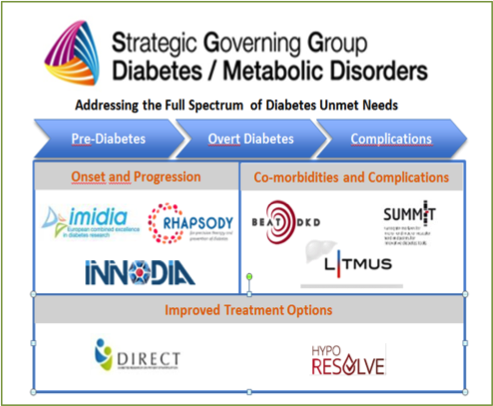The Innovative Medicines Initiative: Carrying the torch of medical innovation
The article was originally published in The European Files.
Our healthcare systems are facing unprecedented challenges from an ageing population and increased prevalence of chronic disease. It is only through innovation and collaboration tackling diseases like dementia, cancer and diabetes we will we be able to meet the needs of patients, healthcare systems and society as a whole.
Public private partnerships in a form of Joint Undertakings established under the last two R&D funding framework programmes (FP7 and Horizon 2020) provided platforms to exploit such opportunities and bring large scale investments from industry into collaborative research initiatives. In constant evolution, these PPPs pioneer every day new models of working together.
The Innovative Medicines Initiative is the largest public private partnership in life science globally, Its overall budget of €5.2 Billion € is jointly provided by EFPIA member companies as in-kind and by the European Commission as cash funding to academic and public participants.
EFPIA is proud to be a partner in IMI, an open innovation model that addresses some of the major challenges in new drug development, such as reducing late stage attrition, getting new medicines to patients faster and more safely, as well as improving health outcomes.
The process of researching and developing new therapies is long, complex and risky. These are three challenges that IMI seeks to address by finding novel R&D solutions and harness the potential of new frontiers like genomics and data analytics through a combination of company collaboration (big, mid-cap and SMEs), public investments and a funding model that enables participation of health technology assessment bodies, payers, regulators, patients and charities in addition to academic institutions.
IMI provides tangible, practical tools to accelerate research in areas of high unmet patient need, increase efficiencies in the R&D process and critically, improve patient outcomes.
Dr. Elias Zerhouni, President of R&D at EFPIA member company and IMI partner, Sanofi, explains the very tangible impact IMI is having in diabetes.
“Today more than 400 million diabetic patients are estimated worldwide and the number is expected to even rise to 552 million by 2030. Diabetes with its associated complications is a severe and pandemic disease causing human suffering but also represents a major burden both for society and healthcare systems and hence one of the biggest social economic challenges of our time.
Within the IMI, 16 EFPIA companies have joined forces to develop unique innovative projects addressing bottlenecks in order to deliver better health care solutions for diabetes. As of today 250 Million € are allocated to this task.
The first IMI projects have recently been completed and delivered impressive results.
An outstanding example is the IMIDIA project dealing with the insulin producing betacell function. It has successfully developed the first disease relevant human beta-cell line as well as disease specific in-vivo models strongly improving research and development in type-2 diabetes.
Ongoing IMI projects like DIRECT and RHAPSODY address the heterogeneity of type-2 diabetes and aim to identify biomarkers for a better classification of patients for existing or novel therapies and thus deliver more individualized therapies.
Other ongoing IMI 2 projects are addressing severe complications in the later stage of type 2 diabetes. BeatDKD aims at diabetic kidney disease, a severely and progressively debilitating condition, the LITMUS project addresses fatty liver disease commonly accompanying obese diabetics (not related to alcohol abuse), being a starting point to irreversible tissue destruction (fibrosis and cancer). The objective of those projects are to better understand the mechanisms and development of these complication by identifying easy accessible indicators (e.g. in blood) that would facilitate diagnosis and enable prediction of disease progression and in turn improved therapy.
A new IMI 2 project strives to elucidate the underlying mechanisms of hypoglycemia, which hinders optimal insulin therapy in patients with insulin-dependent diabetes. In parallel, another new diabetic cardiomyopathy IMI 2 project investigates what makes diabetics 4-fold more susceptible to this heart failure condition through in-depth analysis and comparison of medical profiles of heart failure patients with and without diabetes.
Another focus is on type 1 diabetes, presenting most typically in children and adolescents. It lacks scientific understanding of the triggering events and disease progression. Within the INNODIA consortium the scientists are aiming to understand and differentiate the multifaceted mechanisms. They will create novel tools for diagnosis, models to improve researching the disease mechanisms and a clinical network allowing accelerated, specialized and standardized clinical studies.
Indeed, we must acknowledge that no single institution, company, university, country, or government has a monopoly on innovation or could succeed in deciphering the complexity of human diseases.
I was impressed to see the yield of already available tangible, and intangible achievements, enabled by strict governance along agreed demanding objectives, paving the way to novel, safe and cost-effective solutions empowering life.”
The same multifaceted approach is applied to other public health challenges such as dementia or antimicrobial resistance.
Carrying the torch of medical innovation through IMI is a journey EFPIA and its members are committed too.
